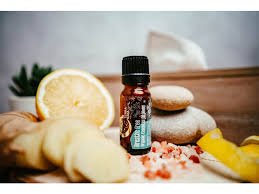Which is the Most Powerful Essential Oil?
Essential oils have gained significant popularity in recent years due to their diverse range of therapeutic properties and applications. From promoting relaxation to supporting overall well-being, these potent plant extracts have become staples in many households. However, with numerous options available, determining the most powerful essential oil can be challenging. In this article, we will explore the factors that contribute to the strength of essential oils and compare some of the most commonly used varieties.
Introduction To Essential Oil
Essential oils are concentrated plant extracts derived from various parts of plants such as flowers, leaves, stems, and roots. These oils contain the natural aroma and beneficial properties of the plant from which they are extracted. Essential oils have been used for centuries in traditional medicine, aromatherapy, skincare, and other wellness practices.
What Makes An Essential Oil Powerful?
Several factors contribute to the potency and effectiveness of essential oils:
Quality of Ingredients
The quality of the plant materials used and the methods of cultivation can significantly impact the potency of the resulting essential oil. Organic, sustainably sourced plants that are free from pesticides and other contaminants are generally considered to produce higher-quality oils.
Extraction Method
The method used to extract essential oils from plant materials can affect their purity and concentration. Common extraction methods include steam distillation, cold pressing, and solvent extraction. Each method may yield oils with different chemical compositions and therapeutic properties.
Factors To Consider When Determining Strength
When evaluating the strength of an essential oil, several factors should be taken into account:
Aroma: The intensity and complexity of an essential oil’s aroma can be indicative of its potency. Oils with strong, distinct aromas are often considered more powerful.
Therapeutic Properties: The therapeutic properties of an essential oil, such as its antimicrobial, anti-inflammatory, or analgesic effects, can also influence its strength. Oils with a wide range of therapeutic benefits may be considered more potent than those with limited properties.
Research and Evidence: Scientific research and clinical studies can provide valuable insights into the effectiveness of essential oils. Oils that have been extensively researched and shown to have significant therapeutic effects may be considered more powerful.
Comparison Of Various Essential Oils
Let’s compare some popular essential oils to determine their relative strength:
Lavender Oil: Lavender oil is renowned for its calming and soothing properties. It is often used to promote relaxation, relieve stress and anxiety, and improve sleep quality.
Peppermint Oil: Peppermint oil has a refreshing aroma and is known for its invigorating and cooling effects. It can help alleviate headaches, improve focus and concentration, and relieve digestive discomfort.
Tea Tree Oil: Tea tree oil is prized for its powerful antimicrobial and antiseptic properties. It is commonly used to treat acne, fungal infections, and minor wounds.
Eucalyptus Oil: Eucalyptus oil has a refreshing scent and is valued for its decongestant and expectorant properties. It can help relieve respiratory congestion and promote clear breathing.
Lemon Oil: Lemon oil has a bright, citrusy aroma and is known for its cleansing and detoxifying properties. It can be used to freshen the air, uplift the mood, and support immune function.
Practical Applications And Benefits
Essential oils have a wide range of practical applications and benefits:
Aromatherapy: Essential oils can be diffused or inhaled to promote relaxation, improve mood, and support emotional well-being.
Skincare: Many essential oils have skin-nourishing properties and can be incorporated into skincare routines to address various skin concerns.
Haircare: Some essential oils can help promote healthy hair growth, soothe scalp irritation, and add shine and vitality to the hair.
Household Cleaning: Essential oils with antimicrobial properties can be used to create natural, non-toxic cleaning solutions for the home.
Safety Concerns And Precautions
While essential oils offer numerous benefits, it is essential to use them safely and responsibly. Some general safety precautions include:
- Always dilute essential oils with a carrier oil before applying them to the skin.
- Perform a patch test to check for any allergic reactions or sensitivities.
- Avoid applying certain essential oils directly to the skin, especially sensitive areas like the eyes and mucous membranes.
- Keep essential oils out of reach of children and pets, as some oils can be toxic if ingested.
Consult a qualified healthcare professional before using essential oils, especially if you are pregnant, nursing, or have underlying health conditions.
Conclusion
In conclusion, the most powerful essential oil ultimately depends on individual preferences and intended uses. Each essential oil offers unique benefits and properties that can support overall health and well-being. By understanding the factors that contribute to the strength of essential oils and exploring their practical applications, individuals can harness the power of these natural remedies safely and effectively.
FAQs
Are Essential Oils Safe For Children?
While some essential oils can be safe for children when used properly and in appropriate dilutions, it’s essential to exercise caution and consult with a healthcare professional before using them on children.
Can Essential Oils Be Ingested?
Ingesting essential oils can be hazardous and is not recommended without the guidance of a qualified aromatherapist or healthcare provider. Many essential oils are toxic if ingested and can cause serious health complications.
How Should Essential Oils Be Stored?
Essential oils should be stored in dark glass bottles in a cool, dark place away from direct sunlight and heat to preserve their potency and shelf life.
Can Essential Oils Interact With Medications?
Yes, some essential oils can interact with certain medications, either by enhancing or inhibiting their effects. It’s crucial to consult with a healthcare professional before using essential oils if you are taking medication.
Are Essential Oils Regulated By The FDA?
The FDA does not regulate essential oils specifically, but they fall under the category of cosmetics and are subject to certain regulations and guidelines.
also read
9 tools for understanding how software development grows in 2024







